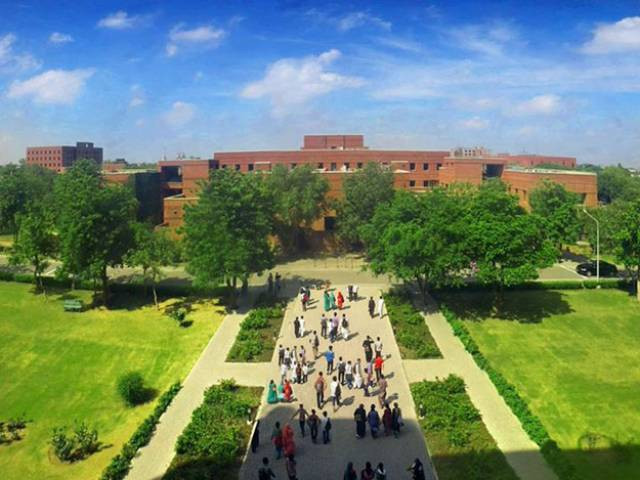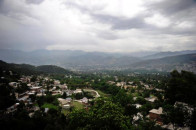Enduring implications: Paradoxes of South Asian citizenship
Cambridge professor speaks at Lahore University of Management Sciences .

Lahore University of Management Sciences
It is in, how Professor Muhammad Waseem puts it, a rising trend of partition studies in academia that we may place academic Joya Chatterji’s talk on The Paradoxes of South Asian Citizenship, 1946-72, organised on Monday at the Lahore University of Management Sciences (LUMS).
The talk focussed primarily on the problem of “minority citizens” in the newly created states of Pakistan and India. Chatterji said it was clear, even as late as April, 1947, that though the idea of Partition had ossified to a large extent, the question of citizenship of migrants was something neither the Indian National Congress nor the All-India Muslim League had believed too pressing a matter.
Chatterji said that India and Pakistan, thus, began by putting forth a territorial definition of citizenship in order to restore confidence among their minority populations. They had the same reasoning for this – the need to prevent mass migrations and to bring stability to the situation that teetered edgily on the tip of a knife.
The measures taken to keep the displaced safe were later to have important implications for how citizenship would be defined. The 23,000-strong Punjab Boundary Force had failed to provide refugees protection and the leaders of both countries decided to create a Military Evacuation Organisation to escort refugees. The soldiers, however, largely from the Punjab, had been gripped by the contagion of communalism, as Nehru put it. The leaders decided refugees would be given protection by soldiers of the same faith. Thus, the countries, in principle, allowed their respective troops to cross the boundary to rescue their respective refugees.
Chatterji said this entailed the countries conceding de facto national status to large numbers of people born in territories outside their borders. “And Muslims in India and Hindus and Sikhs in Pakistan were rendered potential non-nationals in the land of their birth,” she said.
The question of what would happen to the properties of millions of refugees on both sides of the border followed. Chatterji said both countries had expressed their resolve to ensure complete protection of properties, to keep out looters, and to ensure rights of ownership of those properties. Nehru and Liaquat Ali Khan had jointly declared that both governments would take steps to restore the properties to their rightful owners.
What to do about refugees who had occupied abandoned properties presented another challenge. Chatterji said in Calcutta, Delhi and Karachi, refugees had made these abandoned properties home and resisted any efforts to oust them. Then there was the question of what would happen when the refugees decided to return. When India promulgated the Influx from Pakistan (Control) Ordinance in April 1948, which barred entry from Pakistan without the issuance of a permit, the idea was that the only solution to the aforementioned questions was to prevent refugees from returning.
This was followed by a stream of laws that would in effect determine who citizenship rights would be conferred on in either country. With the passage of the Evacuee Property Act in both countries, the properties of refugees were nationalised and put into a pool of resources to be used to house and rehabilitate refugees. The Enemy Property Acts of 1968 then created the “intending refugee,” a minority person who might want to migrate to the “right” country, at a later date. This put the rights to ownership of property of minorities in a flux and gave the judiciary executive powers to decide a person’s intent.
Chatterji said these were some of the laws and practices that had far reaching implications for migrants and minorities on either side of the border. For them, travelling across the border could mean losing one’s home and possessions without the possibility of legal redress. And though they managed to stem the tide of migrations, the new characterisations of citizenship were a far cry from the liberal democratic notions of nationality the founding leaders had set out to espouse.
Chatterji teaches at the University of Cambridge.
Published in The Express Tribune, March 30th, 2016.



















COMMENTS
Comments are moderated and generally will be posted if they are on-topic and not abusive.
For more information, please see our Comments FAQ